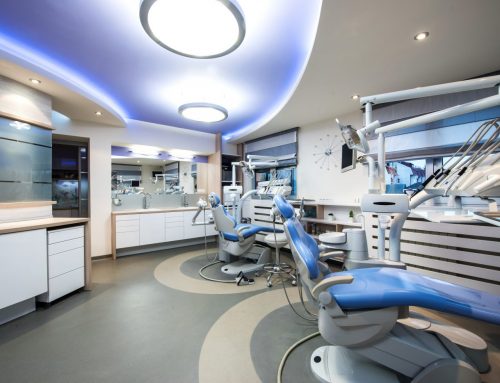Dental professionals have long recognized the goodwill (patients) and their equipment as key factors in determining the value of their practice.
However, they have often overlooked one of the most critical components within a practice that has a tremendous impact on their exit from practicing dentistry, their finances and their overall retirement plan: the dental office lease.
FACT: 83% of dentists have a lease that can prevent them from ever selling their dental practice.
The value of a practice at the time of sale is largely predicated on how a dental lease is set up. When it comes time to retire or transition, most dentists are horrified to learn that their practice is worth much less than they expected due to the terms and clauses within their lease. Ensuring that those terms and clauses are set up properly well ahead of your planned exit is key to ensuring a predictable, profitable and graceful exit from dentistry.
Dangers in the Dental Office Lease
The Landlord’s Right to Terminate the Lease
The “Assignment Clause” in the lease has a direct impact on a dentist’s ability to sell their practice. When ready to retire or transition, you will be required to request permission from your landlord to transfer the lease to an interested buyer. Many dentists are shocked to learn that the assignment provisions in their lease not only grant the landlord permission to deny their request, but also give them the right to terminate the lease altogether.
Why Would the Landlord Want to Terminate the Lease?
FACT: 80% of landlords structure the lease to give them a right to at least 50% of the proceeds when a practice is sold.
This unscrupulous behavior has resulted in many dentists having to share hundreds of thousands of dollars with their landlord, all due to the way the assignment clause was improperly set up in their dental office lease.
Not Selling? Restore the Space Back to its Original Shell
In some cases, transitioning dentists who are not selling their practice but simply want to surrender the lease to their landlord have to spend thousands of dollars restoring their clinic space back to its original configuration because the “Surrender Clause” within their lease requires them to. Spending this money is a bad idea as you will never get any return on this investment back.
Protection Against Unforeseen Circumstances
As you move closer to transition, your chances of succumbing to unforeseen circumstances that interfere with your work increase. Your lease should contain a “Death and Disability Clause” to protect you in the event of an illness or accident that could prevent you from continuing your practice.
In the case of death or serious illness, you should have the right to terminate the lease without penalty. Without this clause, your landlord can pursue you and your family/estate for the remainder of its term, costing hundreds of thousands of dollars in rental fees.
How to Avoid These Costly Mistakes
Plan Ahead
Don’t wait until you’re in your 50’s before you start thinking about retiring. Ideally, you should begin structuring your lease for dental retirement in your 40’s or even sooner. Having spent 20 years working with dentists, we have seen many instances of bad things happening to young dentists.
Secure a Long-Term Flexible Lease with Early Retirement Provisions
Cirrus recommends signing a long-term, flexible lease agreement with 10-year terms and 10-year “options to renew”. Within the lease document, there should be an early retirement provision that is flexible and meets your needs throughout your career. Ask your landlord for a 10-year term with an early “Retirement Clause” stating that after a few years, should you wish to retire early, you have the right to terminate the lease on some degree of notice.
Review Your Lease
Review your lease document and identify the terms that may become a risk to you. Think about your individual situation, your career goals, and plans for retirement. Get an idea of what it is you need to accomplish with your landlord. The next time you negotiate with your landlord, be sure to raise your concerns and open the discussion before you exercise any options to renew.
The key to a successful negotiation is knowing what you want in advance, and having time on your side to do so. It’s important to begin the negotiation process 18-24 months before your renewal or expiry date to allow yourself enough time to negotiate fair terms. Tracking your critical dates is key.
Professional Lease Review and Negotiation Services
Cirrus Consulting Group offers dentists a Critical Dates and Risk Assessment, where our experts review and analyze your dental office lease, flagging it for important critical action dates and hidden risks. Based on the issues uncovered in your lease analysis, our team creates a tactical plan for how your lease should be structured, arming you with the knowledge to protect yourself in your upcoming lease negotiations with your landlord. We also offer full professional dental lease negotiation services, where our negotiators take over the entire process from start to finish, acting as the liaison between you and your landlord.
If you’re planning to retire or transition within the next 10 years, we can help.
Sign-up below for your complimentary consultation with a Cirrus expert!



